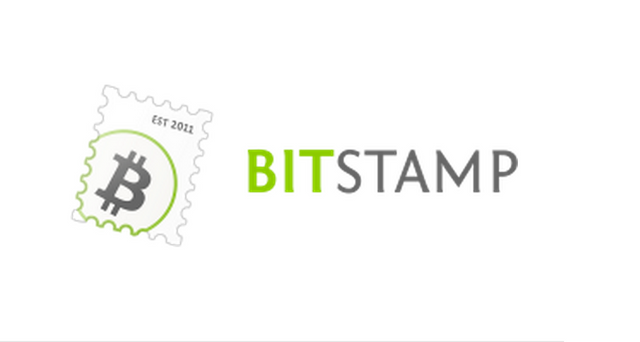Protect Your Bitcoin Privacy and Security Online

Bitcoin offers various levels of privacy and security online as long as it is used correctly. As digital currency, Bitcoin uses encryption techniques to regulate the generation of currency units, as well as verify the transfer of funds while it is independently operating from any central bank exchanges.
About Bitcoin Exchange
A licensed payment institution in the whole of the European Union, Bitcoin has early this year gone through multiple Anti-Money Laundering (AML) and Know your Customer regulations. Despite frenzy in China’s economy due to tightening capital outflows, Bitcoin, remains buoyant and alive. The advantage of Bitcoin is that customers are given the option to trade digital currencies for other assets, using conventional fiat money, or different digital currencies. Al least, it is considered as the most transparent payment network worldwide. For users, always remember that it is your responsibility to adopt good strategies in order to protect your online privacy and security.
News for Washington clients of Bitstamp

But there is sad news for clients of Bitstamp, a notable Bitcoin exchange based in Luxembourg. Following stringent regulations imposed by the State Government, operations will stop in Washington State on the 20th of December. They advised clients that they have until this date to withdraw their funds through Bitcoin or international wire. Accounts will be closed after the cut-off date expires.
However, Bitcoin failed to state any clear reasons or regulations that led to this untimely decision. Bitstamp apologized for this development and hope that services be restored in the future.
In the midst of all these developments, the state government of Washington continues to monitor the progress of the country’s financial technology sector.
Key issue: Bitcoin’s privacy and security online protection
Consumer protection is the primary issue often raised when it comes to crypto-currencies. Transactions made by Bitcoin users have the protection of codes for crypto-currency balance. Online finances today are facing overwhelming challenges in both privacy and protection of digital data. Privacy is essential for bitcoin users as questionable members of society are continually exploring and searching digital realm for wealth and ways to procure large sum of money. Global citizens’ private daily data are threatened by rigid policies from government, scammers and dishonest people who are on the lookout for a few dollars more. However, there are many steps you can adopt for protection.
Financial surveillance
According to Bank Secrecy Act and USA Patriot Act, direct money services are required to document and report specific data of their customers to law enforcement authorities. Bitcoin transactions are not exempted. Companies and users are obliged to abide by surveillance routine.
Those knowledgeable about process and computer & mobile device owners with Internet connection can do the following:
Currency sharing and development;
Financial contracts & strategies; and
Technology vision and thoughts.
Bitcoin is not a commodity or service; but they are considered as platforms, software benchmarks and collective networks. Their purpose is to facilitate group computing. Instead, these are methods for users to access apps and for developers to create and share novel apps. Consumers and policymakers have to understand this reality.
Three methods for privacy and security online
Use privacy-Centric Web Browsers
Few web browsers offer better privacy than the standard browsers used traditionally by the mainstream. Worth mentioning are: (1) open source Brave browser – it is a great tool to block ads and track applications. The program using incentives from Bitcoin to make worthwhile experience; (2) Mozilla’s Firefox provides confidentiality and security focused extensions; and (3) utilizing solid choice to hide IP, complicates proxies, and converts into a code some facets of browsing experience. Aside from privacy, Tor allows users to surf websites that are not indexed by Google and traditional browsers.
Virtual Private Networks (VPN)
Encryption and re-routing practices of VPNs are provided to change location of user’s server as well as IP address. If product does what it claims, third party will not be able to track exact location of a VPN user or monitor traffic. A reliable VPN provider offers a different experience and cost.
Privacy-focused email services & messaging
Email and messaging services offer strong privacy and end-to-end encryption. Email services such as: Protonmail, Tutanota, OpenMailBox and many others that provide encrypted email features. You can utilize encryption standard OpenPGP through your current service. Other services are Chatsecure, Ricochet, Signal and Telegram. They provide varied private messaging types.
Cryptocurrency security

Cryptocurrency theft is becoming common as scammers and hackers now looked at social engineering methods as most profitable option to acquire people’s funds online.
Cold Storage
Practices in cold storage are the best ways to keep out interlopers of your digital resources. The strategy keeps offline cryptocurrencies away from harm. Bitcoin proponent stores offline using: (1) paper wallets; (2) hardware wallets; and (3) other forms of protected media.
Multi-Signature Transactions
This method uses more than a single person and keys authorizing cryptocurrency transaction. A digital signature scheme, it protects your assets from being used unknown to signers of the total party involved. The first multisignature wallet in 2013 was introduces by Bitgo many variations were made available to the public.
Multi-factor authentication (MFA) and Two-factor authentication (2FA)
Typical standard practices for most bitcoin users are MFA and 2FA. By using multiple verifications, the method confirms the identity of a user by using multiple verifications. Well-known service like Google Authenticator and Authy offer multiple validations. Exchanges and wallet services also offer SMS codes as Bitcoin companies use as 2FA to access their services. Highly recommended are MFA and 2FA added features to bitcoin applications and accounts.
Two-Factor-Authentication (2FA)
Most services guarantee privacy and security by using mnemonic seeds passphrases, PIN numbers to gain entry. You can back up these details so they will not get lost or be forgotten. Keep all copies of passwords handwritten passwords and keep their entry data in a secure location typically offline.
5 tips for Bitcoin online protection
However, there are steps as your online protection and become the target of criminals in cyberland and internet marketing marauding bands.
Learn about and use Crypto Currency, like Bitcoin.
Although Bitcoin is still a young technology, it has the potential to permit buyers to purchases anonymously online. Every time you use a credit card, there is a digital footprint made by that transaction. They can be used anonymously with crypto currency.
Use a VPN service to connect to the Internet.
Virtual Private Network (VPN) can cypher your web traffic from the computer towards site that are very difficult for anyone to read your information as it will all be deciphered the minutes it leaves your browser. For a nominal cost, you can avail of many VPN services to use.
Keep your antivirus software updated.
Viruses in the internet are like true viruses as they often changed and get adapted to their surroundings. To prevent a computer attack, the best thing is be updated of the latest antivirus software.
Develop a password strategy.
A great pain in the butt for many people is forgetting a password when it is needed and becomes a serious inconvenience, more so when you have so many different passwords existing. One simple strategy is to adapt a PHRASE instead of a word or character string. Instead of “JC 1989” try use “JC was born in 1989!” These are easily remembered and are so much harder to unravel.
Be wary of the term “FREE” attached in apps, services and software.
Individuals are clamoring for “free” online services and tools. They hardly question why it is free, how are people working in these companies paid and how to make this service work? The answer is that YOU are being sold! Unluckily, there is no way to tell which apps are stalking everything you do on your mobile device or computer. The wisest advice is to delete apps not used regularly and read carefully the warnings and request for permission to let the software perform a task.
Last words about privacy and online protection

Your funds in Bitcoin are well-covered with many methods of privacy and protection that can be used online and with cryptocurrencies. But you are on your won to research and practice these techniques to ensure that your computer footprint will not be pursued or assaulted in a harmful way. There are many types of entities who find your digital data valuable. Those with lots of online experiences are manipulating to the max ways to obtain your credentials and information. However, you are not out in the cold as you have these protection so nosy governments and hackers will not be successful in getting your wealth.